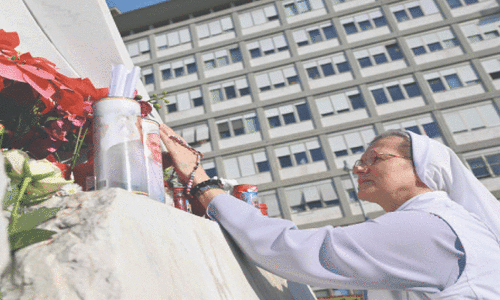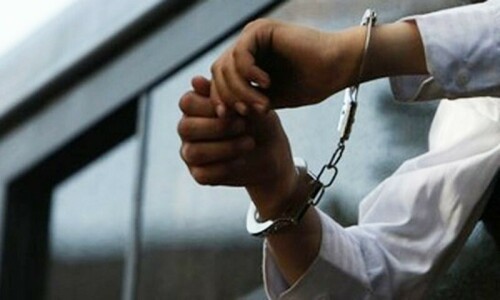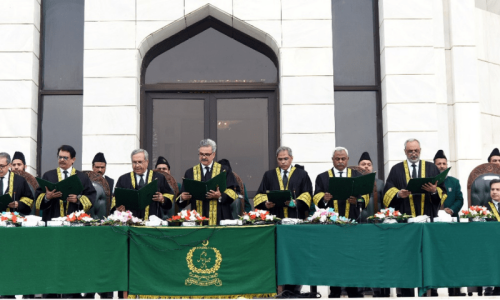BEGEJCI (Yugoslavia): Eleven years after the Yugoslav army established a secret prison camp for Croatians at this village in northern Serbia, locals are still afraid to talk publicly about what they saw.
As Croatia this week remembered the 11th anniversary of the fall of Vukovar to Serb forces — a landmark battle in the 1991-95 war for independence from the former Yugoslavia — the people of Begejci were quietly trying to forget.
“We knew there was a detention camp but at the time no one dared to talk. There was a kind of understanding that everyone should mind their own business,” said Cipu Ionel, an official in the mainly ethnic Romanian village.
“It was forbidden to go near the camp. Villagers who had their crops next to the camp could not go there.”
Little now remains of the prison, established in 1991 at the headquarters of a local hunting association on the Serbian side of the Romanian border. An abandoned pavilion lies without doors or windows, and a solitary light tower stands in a neighbouring field.
Valentina Popu, another resident of Begejci, recalled seeing the prisoners — mainly middle-aged Croatians from Vukovar and its surrounding villages — stretching their legs behind the barbed wire which ringed the camp.
“Most of them were quite old and there was maybe one woman among them,” she said.
“I never saw them being beaten,” she added quickly before changing the subject. “I never get involved in politics.”
Rebel Serb forces backed by the former Yugoslav People’s Army (JNA) besieged Vukovar for three months, finally taking the Danube port near the Serbian border on Nov 18, 1991.
More than 1,100 civilians were killed and some 4,000 wounded as the town was all but destroyed. Another 5,000 people were taken prisoner and the remainder of Vukovar’s 21,000 pre-war Croatian inhabitants were expelled.
Three Yugoslav army officers have been indicted by the United Nations for alleged war crimes committed in Vukovar, but only one has turned himself in to the UN tribunal at The Hague.
Within a month of its creation in the autumn of 1991, the prison camp at Begejci had a population of some 600 inmates in an area of 500 square metres.
One of the few first-hand accounts of life in the camp comes from former prisoner, Dominik Vorgic, 75, who wrote a memoir published in 1996. He speaks of daily beatings and humiliation at the hands of the Yugoslav army guards.
Vorgic said he was released at the start of December, 1991, along with around 300 other inmates as part of a prisoner exchange between the Yugoslav and Croatian armies.
By the end of the same month, the camp at Begejci had closed.
One of the few locals who was given access to the prison, Djordje Kitaresku, was unavailable to talk about his experiences.
“He should have never talked — he could have problems,” said his mother.
Kitaresku, an ethnic Romanian like 70 per cent of the people in Begejci, spoke to three Serbian journalists at the end of September, after a break in the UN war crimes trial of former Yugosalav president Slobodan Milosevic.
Croatian authorities have claimed there were 10 detention camps in Serbia, an accusation Milosevic has furiously denied.
Milosevic was overthrown in a popular uprising in 2000 and extradited to The Hague by the new reformist authorities in Belgrade the following year.
But the Yugoslav government still stands accused of obstructing the UN war crimes tribunal, turning a blind eye to lingering nationalist extremism and failing to bring maverick elements of the armed forces under civilian control.—AFP













































